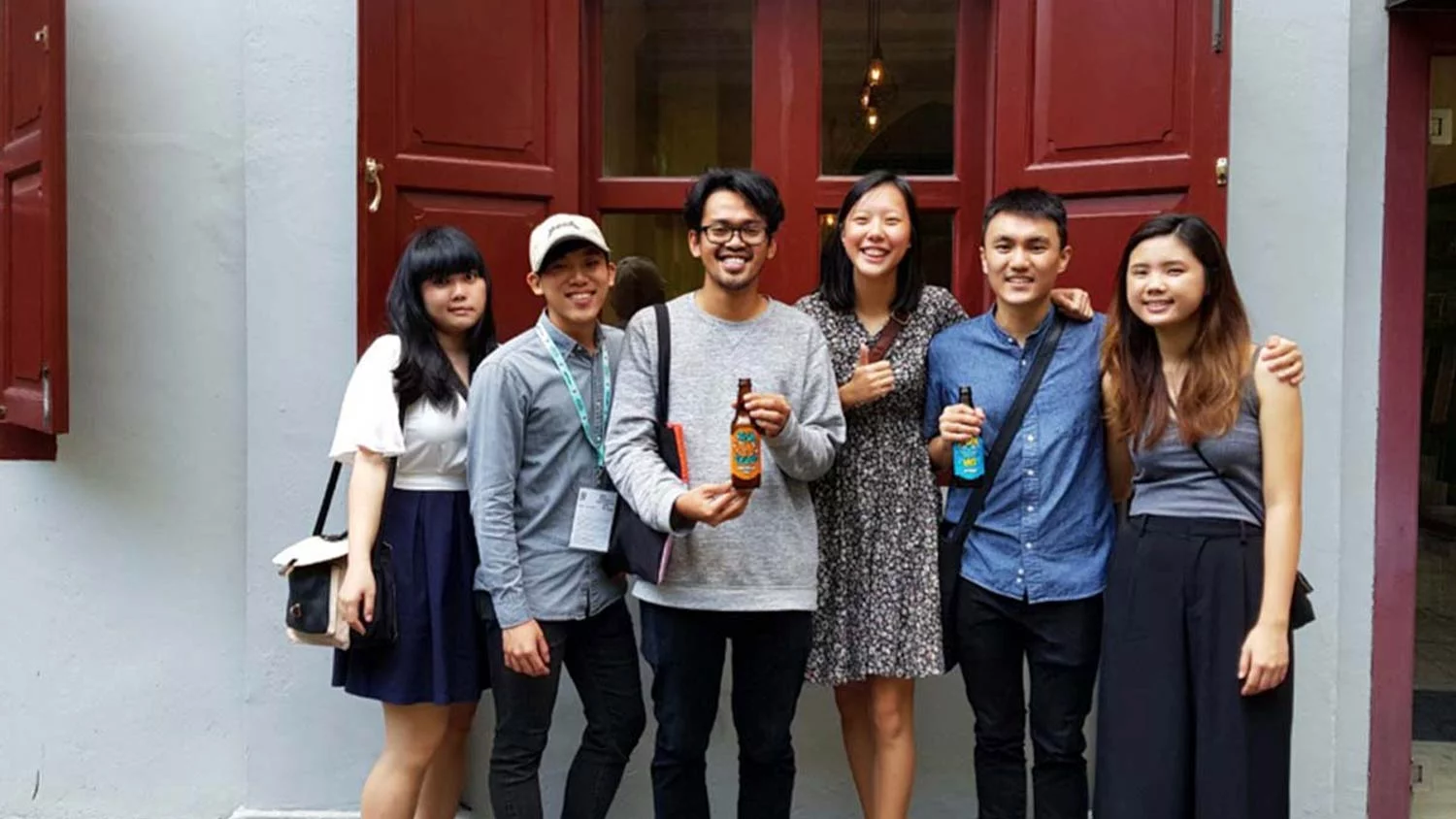Then and Now: Face Time with Filmmakers
By Martin Loh


Masterclass: Rithy Panh took place at National Museum of Singapore

After watching films, I always try to construct a mental image of the directors in a bid to gain some understanding as to how they are as people and how they arrived at the film. At the end of the last screening session for the Southeast Asian shorts, I formed mental images of the directors without flipping through the booklet to see how they actually looked like. I got curious and wanted to find out what others on the Youth Jury thought as well. Daryl: The one I spoke with the most was probably Stephen, director of The Sound of Coins Hitting Brass. At first, I thought he was one of those gloomy filmmakers who did nothing but talk about films all day – especially since his short film was serious, and even morbid to some extent. But after a long talk at the after-party and supper afterwards, it was great knowing the filmmaker and his life and beliefs more personally. I think there is more to learn from filmmakers about their developments and philosophy than analyzing their films to understand how their films turn out the way they did. His deadpan humor and relaxed ‘elder brother’ vibes with a faint glimmer in his eyes as he listens makes him one of the nicest and smartest people I’ve met. Annette: So I didn’t have any expectations of Carlos (director of Suerte) before I met him but I was really intrigued when I realized he was also the film student in the film. That gave me more questions about the grey areas between the fiction and the reality of Suerte. When I met Carlos and Carl (Betong) I was really humbled by their stories and by what the film meant to them. Suerte is a very personally meaningful film, and Carlos had a deeply felt connection to the friends and people who live on the street called “Suerte”, which means “lucky” in Tagalog. Furthermore, in making films that depict current issues with a critical view can incur political ramifications and consequences. It was a brave film, but understanding this context helped me to see the full weight of the investment in making this film – both for the filmmakers and his actors. I also thought it was so clever that Carlos who is a university student working on his thesis project plays himself in Suerte, it brings this self-reflexivity and context to the viewers. I didn’t have this knowledge when I first watched Suerte and can see myself watching it again with a very different frame of mind. However, this film is first and foremost for viewers in the Philippines; because I have now learned the context the film will have a new impact on me, but the local audiences live in the midst of the context I am seeing on screen. I’m so excited to see Carlos continue on his interests in making bold films that humanize the people he is depicting. I now also know that Carl (Betong) and Carlos are going to be collaborating in future and that Carl is also writing for films and series – I can’t wait to see all of these! Jessica: Jessica imagined Malediction’s director to be pleasant and mellow, wearing black rimmed glasses and liked green as his favourite colour. I believed that he going to be a serious and stoic guy who spoke slowly and loved cats. Our brief interaction with Makbul was filled with laughter as we learned about the story behind his film. He also shared with us how his producer instructed him to avoid the colour green due to superstition surrounding the goddess which appears in the film. According to him, the goddess is based off “a real mythical” Indonesian goddess of the sea, Nyai Roro Kidul, who loves the colour green. His producer warned him as they did not want their film to be “dragged down underwater”, citing a previous project where files mysteriously disappeared from their computers. Makbul was indeed wearing black rimmed glasses and used to keep a pet cat, but the conversations we shared revealed a humourous and thought-provoking director we could not get enough of. At the end of it all, I believe films serve as an extension of the filmmaker. Through films, we are allowed a glimpse into someone else’s life, experiences and world view. After all, “Film is not just entertainment, it is an expression of who you are…” – Shekhar Kapur, Head of Jury, at the Silver Screen Awards. All images in this article are credited to the Youth Jury 2017.

